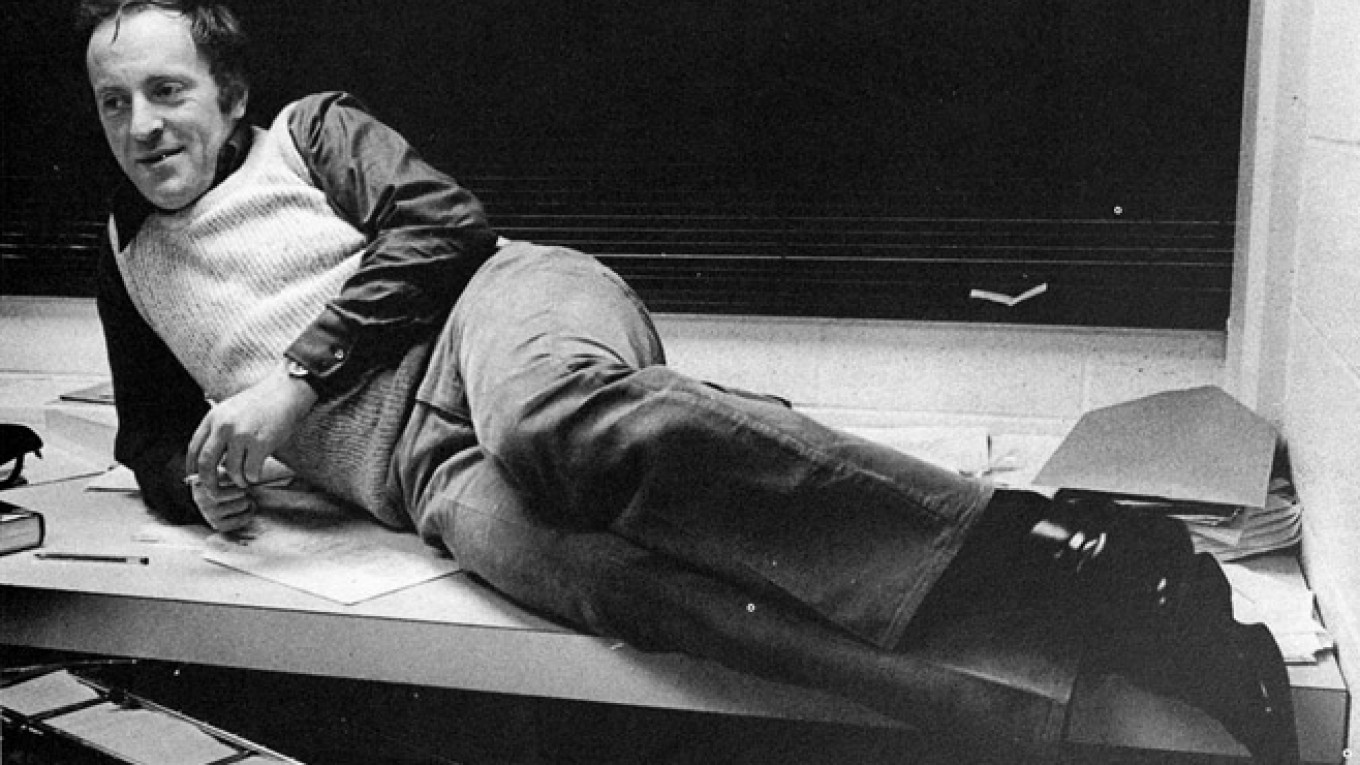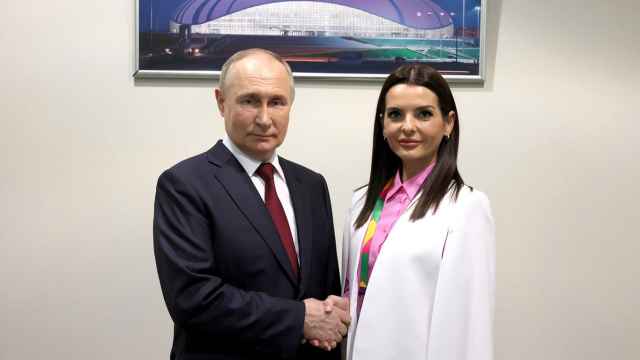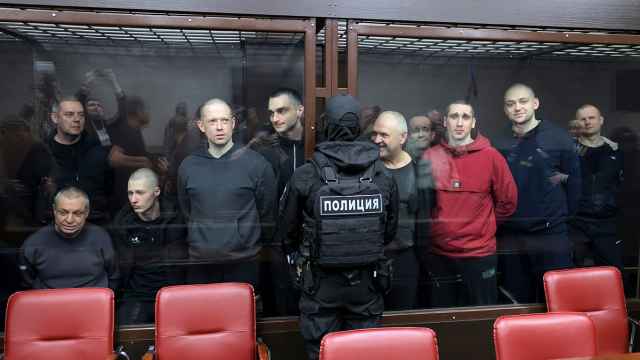Sunday marked what would have been the 75th birthday of beloved poet Joseph Brodsky, Russia's most recent Nobel Prize winner in literature.
Though he may have died nearly two decades ago, Russians have gone all out in recent days to honor Brodsky's life and work, including with a museum launch, documentaries aired on state television channels and the prospect of a Moscow street named in his honor.
After years of failed attempts to purchase the property from its current owners, a museum was temporarily opened in the communal apartment in St. Petersburg where he lived until he was compelled to emigrate from the country in 1972.
Brodsky's daughter Anna was one of the first visitors to the museum, which — though still undergoing restoration — is expected to open on a more permanent basis by the end of this year, Rossiiskaya Gazeta reported.
Moscow City Duma lawmaker Yevgeny Gerasimov told the Govorit Moskva radio station Saturday that his colleagues would readily support an initiative to name a Moscow street after the poet.
The literary great has already been honored with monuments in Russia, including one that was unveiled in the courtyard of the Philology Faculty of St. Petersburg State University in 2005, and another on Moscow's Novinsky Bulvar, near the U.S. Embassy, in 2011.
Brodsky is the last Russian poet widely recognized as a classic of the Russian literary tradition. In 1987 he received a Nobel Prize in literature "for an all-embracing authorship, imbued with clarity of thought and poetic intensity." In his work he has explored new poetic styles without breaking with the classic Russian school of poetry.
Brodsky was born to a Jewish family in Leningrad, now St. Petersburg, in 1940, just over a year shy of the Nazi siege of the city that claimed hundreds of thousands of lives.
At age 15, he left school to work in a factory, and then at a morgue. He continued to hold various odd jobs, while devoting his free time to reading widely, learning foreign languages and pouring himself into his studies of philosophy, antiquities and British and American poetry.
He began his own foray into poetry in 1955, some of which was published in the underground Sintaksis journal. Brodsky quickly gained adoring fans among other poets and the general public, a visibility that soon attracted the attention of the Soviet authorities.
He was denounced by official newspapers, arrested and committed to mental institutions on various occasions. On trial in 1964, as he faced charges of social parasitism, a court determined that odd jobs and poetry did not constitute an adequate contribution to society. He was sentenced to five years of forced labor, but served only 18 months at a farm in the Arkhangelsk region.
Over the years, Brodsky gained fame in the West with much of his work published abroad. After another series of run-ins with security services, Brodsky was made to emigrate, first to Israel and then to the United States, where he taught at the University of Michigan, as well as other institutions. In 1991 Brodsky became a Poet Laureate of the United States.
He never returned to Russia before succumbing to a heart attack in his New York City apartment in 1996. He was buried in Venice, Italy.
Contact the author at i.nechepurenko@imedia.ru
A Message from The Moscow Times:
Dear readers,
We are facing unprecedented challenges. Russia's Prosecutor General's Office has designated The Moscow Times as an "undesirable" organization, criminalizing our work and putting our staff at risk of prosecution. This follows our earlier unjust labeling as a "foreign agent."
These actions are direct attempts to silence independent journalism in Russia. The authorities claim our work "discredits the decisions of the Russian leadership." We see things differently: we strive to provide accurate, unbiased reporting on Russia.
We, the journalists of The Moscow Times, refuse to be silenced. But to continue our work, we need your help.
Your support, no matter how small, makes a world of difference. If you can, please support us monthly starting from just $2. It's quick to set up, and every contribution makes a significant impact.
By supporting The Moscow Times, you're defending open, independent journalism in the face of repression. Thank you for standing with us.
Remind me later.






